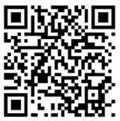Immunology is the study of how our defense mechanisms serve to eliminate disease-causing microbes and tumor cells, how harmful immune responses are developed, how useful responses can be boosted and how harmful responses can be avoided.
There are many different reasons for a student to enroll course of Immunology. Some want units and a good grade. Others need to fill a requirement, either for the degree or as part of prerequisites for some graduate programs. Some are curious and willing to try new challenges. Among these groups of students, some are truly interested in immunology. This course attempts to satisfy the diverse needs of students, while focusing on a fascinating subject.
A well-designed course should prepare students to meet the expected outcomes of having taken that course. As a minimum at the end of this course, there should be a solid understanding of how the immune system functions and how it responds in a variety of ways. It is expected that the basic knowledge can be applied in many different fields of interest.
The field of immunology changes so rapidly that it is nearly impossible to keep up with all the different areas of progress. It is therefore necessary to learn how to access new information and how to assimilate it into the whole, in order to continue to learn beyond the limits of this course. It is also necessary to become aware of the tools and techniques used in research and in applications. Therefore, while learning the essentials of immunology, you will also begin to learn to use some of these tools. In doing so, you should find that they help you in the learning process and move you closer to becoming a lifelong learner.
Program and Teaching Pattern
• Students in Year 3 (MBBS) complete this course.
• Proposed lecture pattern and practice pattern.
Formative assessment
• Mid-term test or Presentation:(20%)
• Practical assessment: attendance + performance (10%)
• Final test: 2 hour closed examination (70%)



